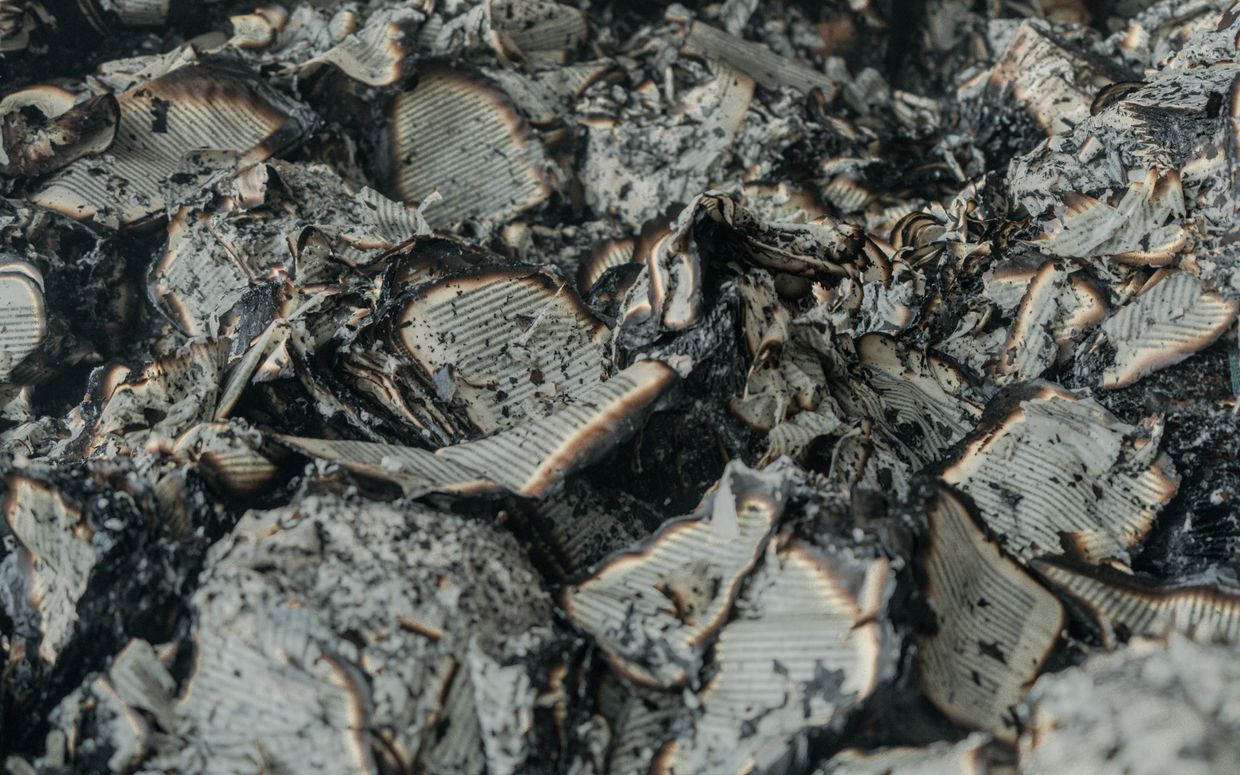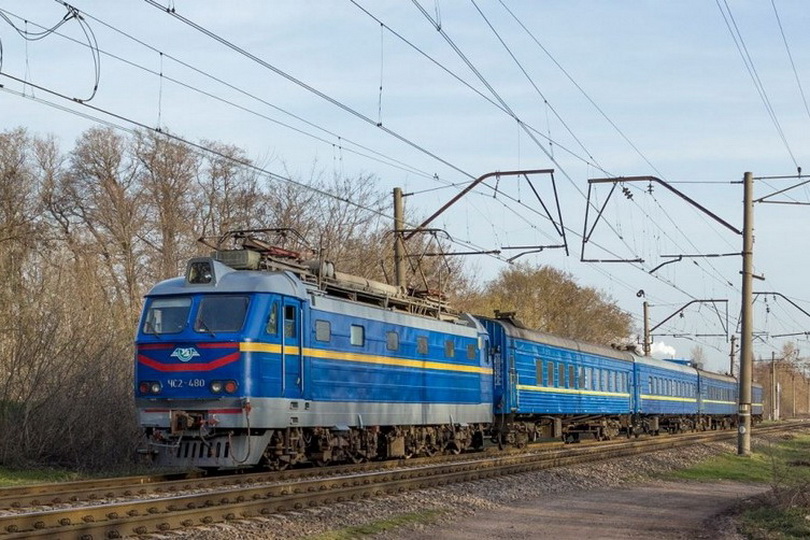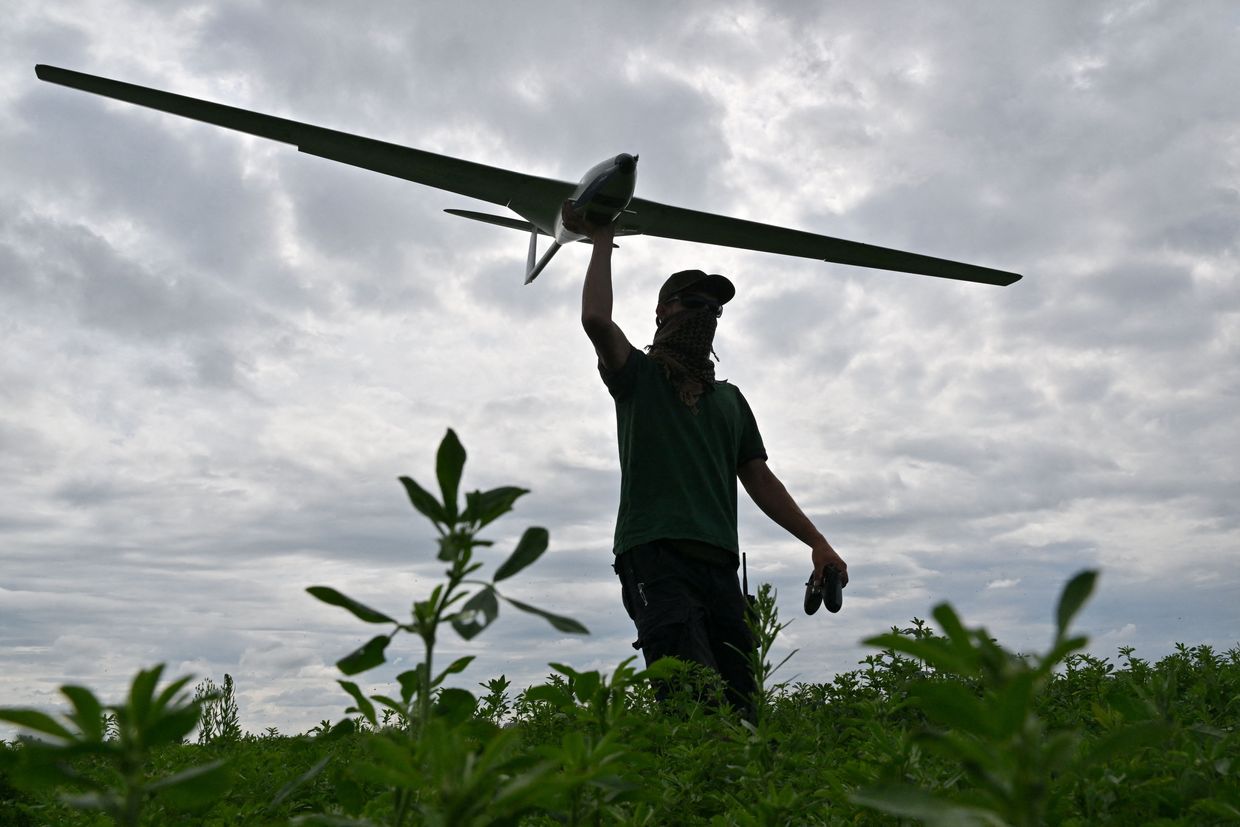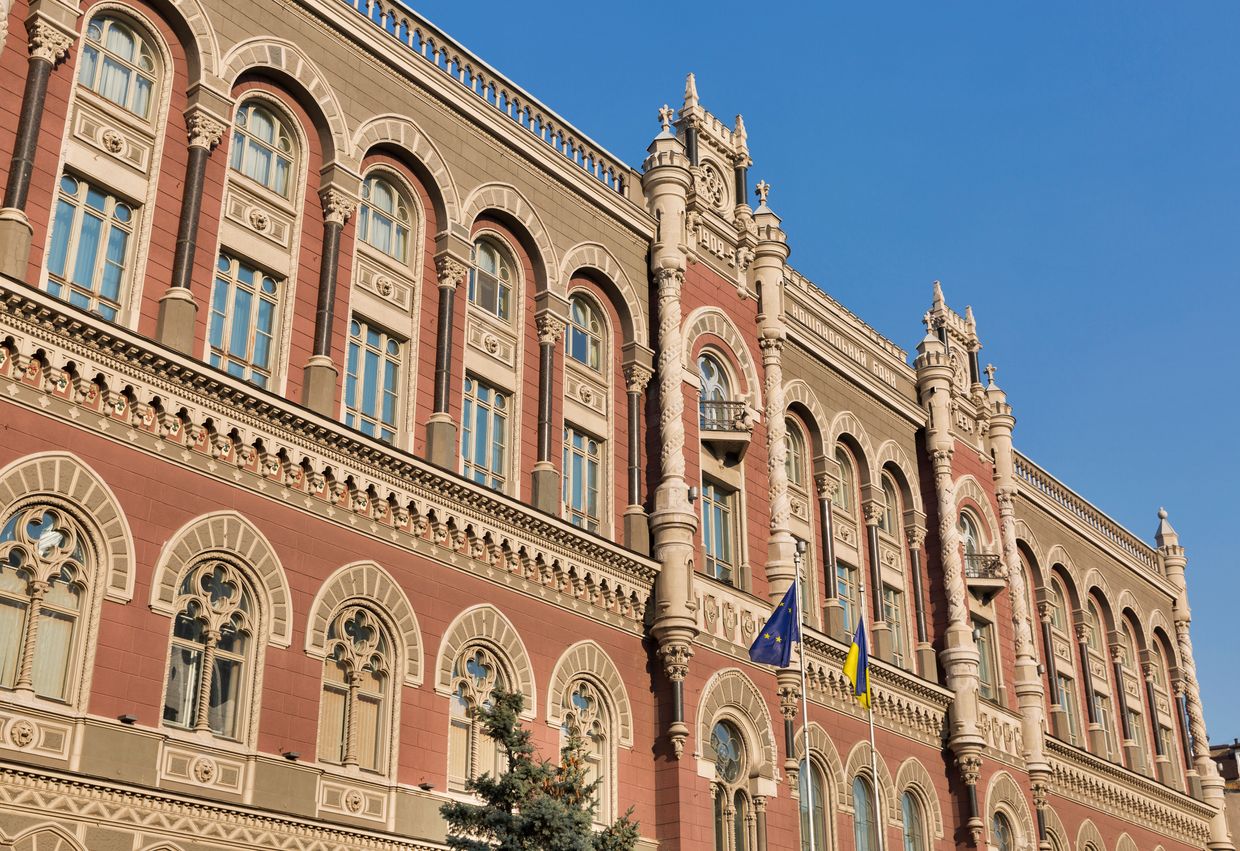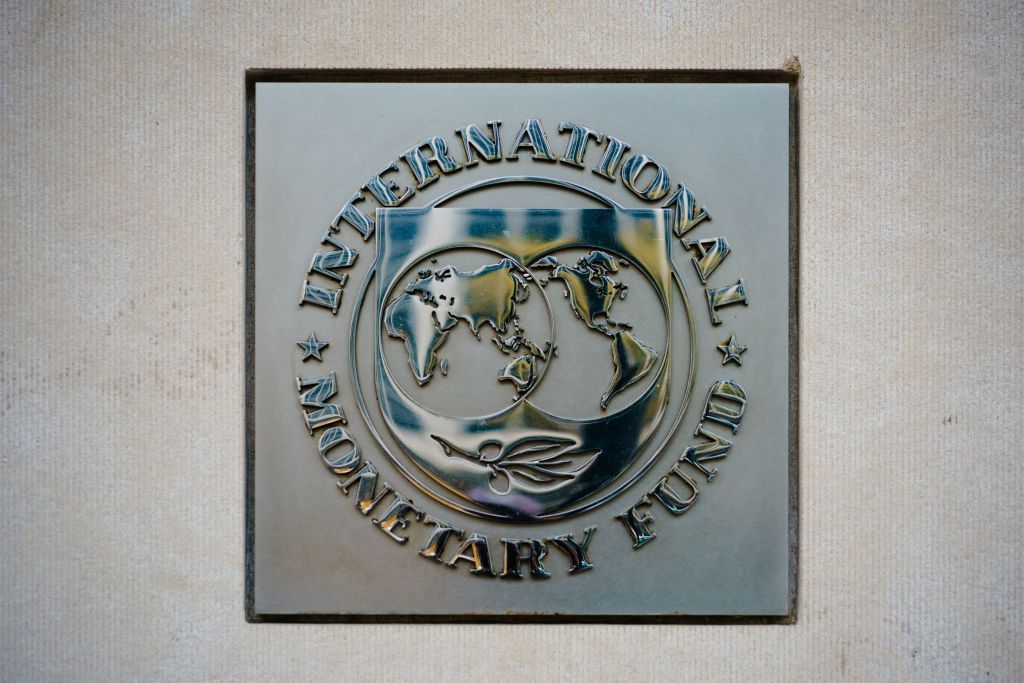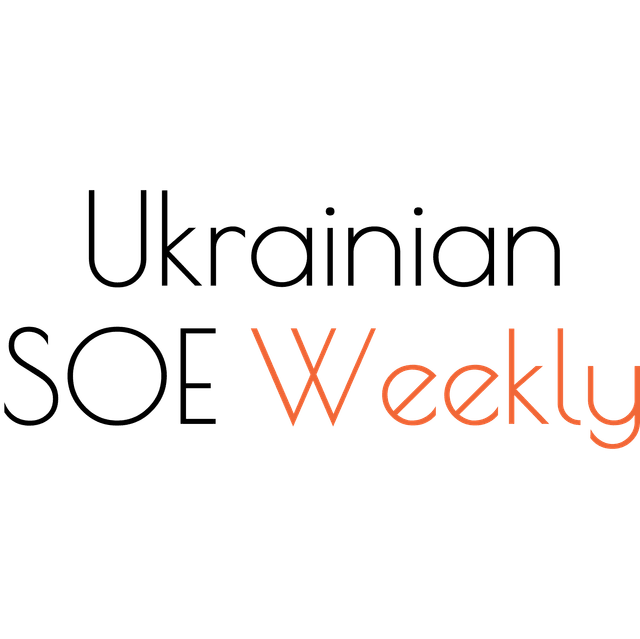Ukraine state-owned enterprises weekly — Issue 133

Editor’s Note: This is issue 133 of Ukrainian State-Owned Enterprises Weekly, covering events from May 19-24, 2024. The Kyiv Independent is reposting it with permission.
Corporate governance of SOEs
Ukreximbank appoints three new top executives. On May 23, Ukreximbank reported that its supervisory board had elected Pavel Haskovec, Maksym Zemlianyi, and Svitlana Ageeva as new members of the bank’s executive board following a competitive selection. Their candidacies must now be approved by National Bank of Ukraine (NBU).
Pavel Haskovec has been chosen as NPL Officer. According to the bank’s press release, Haskovec has more than 25 years of banking management experience in Ukraine, Austria, Italy, Kazakhstan, and the Czech Republic (including 23 years with UniCredit in various positions in Ukraine, the Czech Republic, Kazakhstan and Italy).
Maksym Zemlianyi has been chosen as Chief Operations Officer (COO). He held leadership roles in Ukrainian banks over 20 years and improved their operational resilience during the full-scale military invasion. Zemlianyi has been TAScombank’s deputy CEO since 2016.
Svitlana Ageeva was selected as the new CFO. She has 10 years of financial planning and analysis under her belt from European and Ukrainian banks (including Sense Bank, First Ukrainian International Bank, as well as TBI Bank in Bulgaria).
As we wrote in Issue 130, on May 3, Ukreximbank’s supervisory board had elected Viktor Ponomarenko as the bank’s new CEO following a competitive selection. His candidacy is yet to be approved by the NBU. Until then, Serhiy Iermakov, will continue as the bank’s current CEO. (See Issue 123 for detail.)
Independent supervisory board to be formed at Ukrtatnafta. On May 21, Naftogaz and Ukraine's Defense Ministry – Ukrtatnafta’s shareholders jointly holding 100% of the company’s shares – began the process of establishing a supervisory board.
According to Naftogaz’s press release, the board will include a majority of independent members, nominated via a competitive selection, as well as shareholders’ representatives.
In SOE Weekly Issue 68, we reported that the shares of Ukrnafta, Ukrtatnafta, Motor Sich, AvtoKrAZ, and Zaporizhzhiatransformator (ZTR) were seized “for the needs of the state” and transferred to the Defense Ministry on Nov. 6, 2022.
The seizures were made under the Law on the Transfer, Forced Alienation, or Seizure of Property under Martial Law or State of Emergency, which obligates the state to eventually return the seized assets to the owners or give them fair compensation.
Naftogaz owns 43.05% of Ukrtatnafta. The remaining shares were allegedly divided between the so called Privat group, associated with tycoons Ihor Kolomoiskyi and Hennadiy Boholyubov, and Oleksandr Yaroslavskyi.
According to Naftogaz, the Defense Ministry now manages the shares of Ukrtatnafta that belonged to private owners.
As we reported in Issue 68, former CEO of WOG gas stations chain Serhiy Koretskyi became the CEO of both Ukrnafta and Ukrtatnafta on Nov. 8 and 10, respectively.
As we also reported in Issue 68, the Defense Ministry, as Ukrnafta and Ukrtatnafta’s new shareholder, appointed new supervisory boards at these companies on Nov. 7, 2022. At both companies, all new board members were appointed as shareholder representatives – with all of them nominated and appointed by one shareholder, the Defense Ministry.
As we wrote in Issue 122, Ukrnafta’s new supervisory board with independent members was approved on 6 March 2024.
Infrastructure
Ukrzaliznytsia’s civilian infrastructure in Kharkiv Oblast was shelled by Russians, the company reported on May 23.
Several facilities were hit, and six railway workers were non-fatally injured. Trains continued to run on schedule.
As we reported earlier, Ukrzaliznytsia’s civilian infrastructure in and around Dnipro was also shelled by Russian troops on April 19. See Issue 128 for more detail.
On May 8, Ukrzaliznytsia’s civilian infrastructure in Kherson was also shelled. See Issue 131 for more detail.
Other sectors
SASU identifies shortcomings to the tune of Hr 330 million ($8.2 million) at Ukrspyrt; the company is on the verge of bankruptcy. On May 23, the State Audit Service of Ukraine (SASU) reported the findings of Ukrspyrt’s financial audit.
According to SASU, Ukrspyrt, the largest alcohol distillery producer and state monopoly, has completely ceased production activities since April 2023 and owes millions to the state budget and other creditors.
The demonopolization and reform of the alcohol industry began in 2020. The state budget was forecasted to receive about Hr 5 billion ($124 million). The privatization of distilleries was supposed to be completed in 2021 (according to the Program for Reforming and Developing the Alcohol Industry for 2020-2023).
Instead, as of April 1, eight of Ukrspyrt’s enterprises remained unprivatized, resulting in Ukrspyrt missing Hr 95.7 million ($2.4 million) of the planned privatization proceeds (the book value of the property that the winner of the auction would have to pay separately), SASU said.
According to SASU, Ukrspyrt also incurred more than Hr 70 million ($1.7 million) in additional costs to maintain non-operating enterprises and a further of Hr 5.2 million ($128,000) in lost assets. This caused the company to fail to repay its overdue debts to the state budget and other creditors by the end of 2023.
Yet another loss was due to the late implementation of the decision of the Antimonopoly Committee of Ukraine (AMCU) by Ukrspyrt’s former management: The company paid a Hr 33 million ($817,000) penalty.
The total amount of identified deficiencies and violations in the use of property and funds is over Hr 330 million ($8.2 million), SASU summarized.
SASU also notes that Ukrspyrt’s failure to fulfill its obligations to the state budget and contractors (due to lack of working capital) would result in penalties of Hr 29.3 million ($725,650) and fines of Hr 8.4 million ($208,000) in case the courts decide in favour of the plaintiffs.
As we wrote in Issue 131, on May 6, Stanislav Banchuk was appointed as Ukrspyrt’s new acting CEO.
On March 1, 2024, Vitaliy Koval, head of the State Property Fund of Ukraine (SPFU), wrote that privatization of distilleries was in the home stretch, with the Fund planning to privatize 17 more Ukrspyrt facilities in 2024.
According to Koval, the SPFU had run 115 online auctions of Ukrspyrt assets; 54 auctions resulted in sales. The sum of prices went from Hr 1.25 billion ($30.9 million) to Hr 3.01 billion ($74 million) during the auctions.
As we wrote in January 2022 Issue 63, acting CEO of Ukrspyrt Serhiy Bleskun resigned. After that, the Cabinet of Ministers temporarily assigned Vitaliy Zhadobin as the new acting CEO.
On Nov. 11, 2022, the Cabinet appointed Ivan Kucherenko as Ukrspyrt’s new acting CEO.
Ukrspyrt last had a permanent CEO in 2014, and the company has since been led by various “acting” CEOs.
Privatization
SPFU sets the terms and starting price for UMCC’s privatization, next step is up to the Cabinet. On May 23, the SPFU auction commission determined the terms of privatization of United Mining and Chemical Company (UMCC). The starting price is Hr 3.9 billion ($96.6 million).
The buyer must preserve the core business, invest in modernization, and provide social guarantees for employees.
The SPFU said that it was preparing to submit a draft decision of the Cabinet of Ministers to approve the terms and starting price for the sale. After the Cabinet’s approval, an auction on Prozorro.Sale would be announced.
Vitaliy Koval, head of the SPFU, said that seven different business groups that were interested in UMCC before the full-scale war have verbally confirmed their interest.
As we wrote in Issue 33 more than two years ago, the UMCC privatization auction was scheduled to take place on Aug. 31, 2021. Later, in SOE Weekly Issue 41, we reported that the SPFU cancelled that privatization auction, which had only one qualified bidder.
The media published a list of participants allegedly interested in UMCC assets. Some of them said that the asset was not well prepared for privatization, and they did not consider the auction terms fair. Others claimed that the starting price was inadequate. It was reportedly impossible to estimate the company’s mineral deposits.
The SPFU’s auction commission set Oct. 29, 2021 as the new auction date, but that auction was also cancelled (see Issue 49 for detail). So was the following auction on Dec. 20, 2021 (see Issue 57 for detail).
In Issue 105, we reported that the SPFU changed UMCC’s executive board, dismissing first deputy CEO Yaroslava Maksymenko and replacing her with Yegor Perelygin.
As we reported in Issue 106, the SPFU planned for UMCC to be one of the first large companies to be privatized. The starting price would be determined with BDO Corporate Finance, the SPFU’s advisor on the privatization of UMCC.
However, as we wrote in Issue 109, then acting head of the SPFU Oleksandr Fedoryshyn said later in October that the SPFU was going to offer investors to buy UMCC in a single package with Demurinsky Mining and Processing Plant.
Vitaliy Koval, the newly appointed head of the SPFU, confirmed this later in an interview (see our Issue 117).
In effect, this suggested that the SPFU’s previously announced plans to privatize UMCC as one of the first targets would be seriously delayed, if not put aside.
However, the SPFU’s most recent communication suggests that the Fund has discarded the idea of bundling UMCC and Demurinsky in a single lot.
See more on the previous attempts to sell UMCC in our Issues 33, 41, 49, 56, and 57.
Confiscation of Russian assets, nationalization, and asset seizure
Parliament prevents bankruptcy claims for Ukrnafta, Ukrtatnafta, Motor Sich, ZTR, and AvtoKrAZ to protect them from former owners. On May 22, the Verkhovna Rada amended the law on critical infrastructure (Draft Law No. 8316), approving a moratorium on bankruptcy of state-owned critical infrastructure objects during martial law plus two years.
According to one of the authors of the law, MP Oleksandr Fediyenko (Sluha Narodu faction), this will allow the seized Motor Sich, Ukrnafta, Ukrtatnafta, Zaporizhzhiatransformator (ZTR), and AvtoKrAZ to remain in state ownership.
According to Oleksandr Kuznetsov, managing partner of Armada law firm, the government is effectively depriving the creditors of these companies of the right to have their claims considered. “They would not be able to file an application to secure a claim by seizing the debtor’s property,” he explained. The seizure of these companies should also be lifted, Kuznetsov told Forbes Ukraine.
According to Kuznetsov, to be protected by the law, a company must meet three criteria at once:
- it is a critical infrastructure operator;
- its shares were seized during martial law;
- the state directly or indirectly owns more than 50% of the company’s share capital.
The regional gas companies seized from tycoon Dmytro Firtash’s Regional Gas Company (RGC) Group also fit this description, Forbes Ukraine added.
As we reported in Issue 114, in 2023 Naftogaz completed taking over all Firtash gas companies.
As we wrote in Issue 113, the integration of regional gas companies establishes Naftogaz as a monopoly in gas distribution, but it is a wartime measure, and they should be privatized via public auctions when “the situation allows this”, Naftogaz’s CEO Oleksii Chernyshov said.
“It’s a good law for debtors and a bad law for creditors,” Vadym Kizlenko, an insolvency officer in the bankruptcy case of AvtoKrAZ, told Forbes Ukraine. The company entered bankruptcy proceedings in 2016 and owes a total of about Hr 5 billion (around $123 million at the going exchange rate) to its 39 creditors, Kizlenko said. According to YouControl, AvtoKrAZ’s total debts as of the end of 2023 are estimated at Hr 12.3 billion (around $304 million). The company’s revenue reached Hr 303.7 million (around $7.5 million) in 2023.
In addition to AvtoKrAZ, ZTR would also be granted the right to a “new life without bankruptcy," Forbes Ukraine wrote. According to YouControl, in 2023 the company’s revenue reached Hr 2.2 billion ($54 million), four times more than in 2022. “To approve orders and contracts of companies that are already in bankruptcy, the Defense Ministry as the administrator must hold a meeting of creditors every time, and this can delay decisions important for the country’s defence capability,” Kizlenko suggested. “Closing the bankruptcy case would effectively exclude creditors from this chain,” he added.
According to Forbes Ukraine, another purpose of the moratorium is to protect these companies from their former owners. In May 2023, tycoon Kostiantyn Zhevago announced his plans to file a lawsuit with the Supreme Court over the seizure of AvtoKrAZ. There has been no news since and now he probably cannot proceed, Kuznetsov said. “The former owners would not be able to challenge the nationalization procedure and protect their asset by imposing a ban on its alienation or any other actions that may affect the asset. A judicial remedy is meaningless,” Kuznetsov also said.
The register of critical infrastructure referred to in the law is closed to the public. The State Service for Special Communications and Information Protection (SSSCIP) is in charge of its content and management, Forbes Ukraine also wrote.
“The ban on courts considering disputes over companies only because they belong to critical infrastructure contradicts the Constitution, according to which the state must protect all property,” Kuznetsov concluded.
In SOE Weekly Issue 68, we reported that the shares of Ukrnafta, Ukrtatnafta, Motor Sich, AvtoKrAZ, and Zaporizhzhiatransformator (ZTR) were seized “for the needs of the state” and transferred to the Ministry of Defence on Nov. 6, 2022.
The seizures were made under the Law on the Transfer, Forced Alienation, or Seizure of Property under Martial Law or State of Emergency, which obligates the state to eventually return the seized assets to the owners or give them fair compensation. See Issue 68 for more detail.
Ukrainian SOE Weekly is an independent weekly digest based on a compilation of the most important news related to state-owned enterprises (SOEs) and state-owned banks in Ukraine.
The contents of this publication are the sole responsibility of the editorial team of the Ukrainian SOE Weekly.
The SOE Weekly is produced and financed by Andriy Boytsun. Communications support is provided and financed by CFC Big Ideas. The SOE Weekly is not financed or influenced by any external party.
Editorial team: Andriy Boytsun, Oleksiy Pavlysh, Dmytro Yablonovskyi, and Oleksandr Lysenko.


